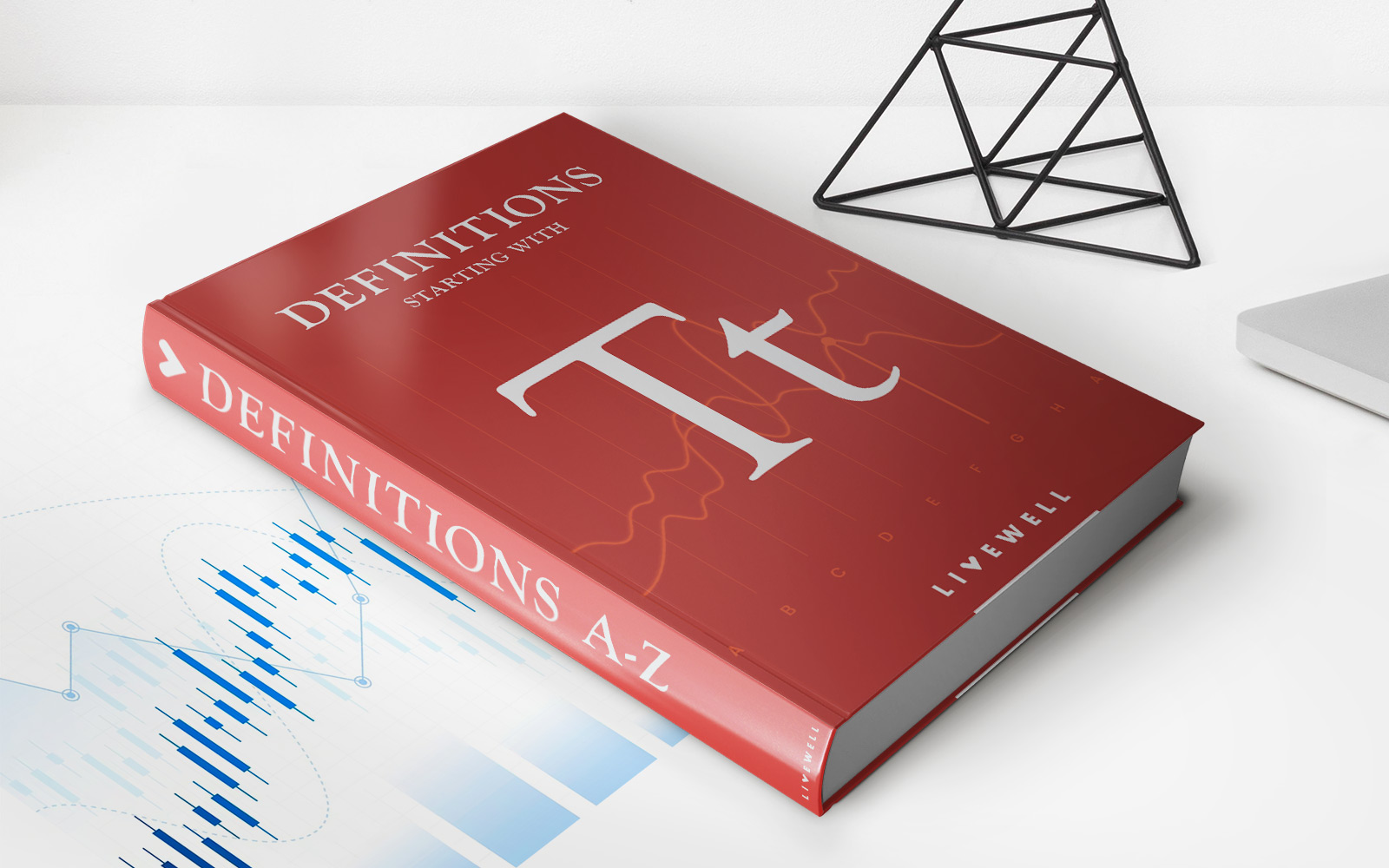

Finance
What Happens If You Can’t Pay Payday Loans?
Modified: February 6, 2024
If you're struggling to pay payday loans, learn about the consequences and options for managing your finances. Get expert advice on dealing with financial challenges.
(Many of the links in this article redirect to a specific reviewed product. Your purchase of these products through affiliate links helps to generate commission for LiveWell, at no extra cost. Learn more)
Table of Contents
**
Introduction
**
Payday loans, also known as cash advances, are a convenient short-term borrowing option for many individuals facing financial challenges. These loans are typically small-dollar amounts, with the expectation of repayment upon the borrower’s next paycheck. While payday loans can provide immediate relief, they often come with high interest rates and fees, making them a costly form of borrowing.
For many individuals, meeting the repayment obligations of a payday loan can be a significant challenge, particularly if they are already facing financial difficulties. In such situations, the inability to repay a payday loan can lead to a cascade of financial consequences, including additional fees, increased interest, and a negative impact on credit scores. Understanding the implications of not being able to pay back a payday loan is crucial for borrowers, as it enables them to explore alternative solutions and make informed decisions regarding their financial well-being.
In this article, we will delve into the intricacies of payday loans, the potential repercussions of defaulting on payment, and the available options for addressing unpaid payday loans. By shedding light on these aspects, we aim to equip individuals with the knowledge needed to navigate the challenges associated with payday loan repayment and empower them to make sound financial choices.
Understanding Payday Loans
Payday loans are short-term loans that are typically characterized by their small-dollar amounts and high interest rates. These loans are designed to provide individuals with quick access to funds to cover unexpected expenses or financial shortfalls until their next payday. The application process for payday loans is often less stringent than traditional bank loans, making them an accessible option for individuals with poor credit or limited financial resources.
When applying for a payday loan, borrowers are required to provide proof of income and a post-dated check or authorization for electronic withdrawal from their bank account. Upon approval, the borrower receives the loan amount, minus the lender’s fees, and agrees to repay the loan in full, along with the additional fees, by their next payday.
It’s important to note that the convenience of payday loans comes at a high cost. The annual percentage rate (APR) for payday loans can be exceptionally high, often reaching triple digits. This means that borrowers end up paying a substantial amount in interest and fees, significantly inflating the total repayment amount. Additionally, if borrowers are unable to repay the loan by the specified due date, they may face rollover fees and a cycle of debt that becomes increasingly difficult to escape.
While payday loans can provide immediate relief in times of financial strain, their high costs and potential for trapping borrowers in a cycle of debt make them a risky borrowing option. Understanding the terms and implications of payday loans is crucial for individuals considering this form of borrowing, as it empowers them to make informed decisions about their financial well-being.
Consequences of Not Paying Payday Loans
Defaulting on payment for a payday loan can lead to a range of serious consequences that can exacerbate an individual’s financial challenges. When a borrower is unable to repay the loan by the agreed-upon due date, they may face the following repercussions:
- Increased Fees and Interest:
Upon defaulting on a payday loan, borrowers often incur additional fees and a surge in interest charges. These extra costs can quickly escalate, further burdening the individual and making it even more challenging to settle the debt.
- Negative Impact on Credit Score:
Unpaid payday loans can result in the lender reporting the delinquency to credit bureaus, leading to a detrimental impact on the borrower’s credit score. A lower credit score can hinder the individual’s ability to secure future loans, obtain favorable interest rates, or even qualify for certain employment opportunities.
- Debt Collection Efforts:
Lenders may employ aggressive debt collection practices to recoup the outstanding amount. This could involve incessant calls, letters, or even legal action, adding stress and anxiety to the borrower’s financial predicament.
- Rollover and Renewal Fees:
If the borrower is unable to repay the loan, they may be tempted to roll over the debt or renew the loan, incurring additional fees and perpetuating a cycle of indebtedness.
It’s important for individuals to recognize the potential ramifications of not paying payday loans on time, as these consequences can have lasting effects on their financial well-being. Seeking proactive solutions to address unpaid payday loans is crucial in mitigating these adverse outcomes and regaining control over one’s financial situation.
Options for Dealing with Unpaid Payday Loans
When faced with unpaid payday loans, individuals have several options for addressing their financial obligations and mitigating the associated challenges. It’s essential to explore these alternatives to avoid the escalating consequences of defaulting on payment. Some viable options for dealing with unpaid payday loans include:
- Negotiating with the Lender:
Initiating a dialogue with the payday loan lender can open the door to potential arrangements for repayment. Exploring the possibility of a modified payment plan or a settlement offer may provide a pathway to resolving the debt in a more manageable manner.
- Seeking Financial Assistance Programs:
Various community-based and governmental organizations offer financial assistance programs to help individuals struggling with payday loan debt. These programs may provide support in the form of low-interest loans, debt counseling, or financial education to facilitate debt resolution.
- Considering Debt Consolidation:
Consolidating multiple debts, including unpaid payday loans, into a single, more structured repayment plan can alleviate the burden of managing multiple creditors and payments. Debt consolidation may involve obtaining a consolidation loan or enrolling in a debt management program.
- Exploring Bankruptcy Options:
In extreme cases where the debt burden is overwhelming and unmanageable, individuals may consider filing for bankruptcy. While this option has significant long-term implications, it can provide a fresh start for those facing insurmountable debt challenges.
- Seeking Legal Assistance:
Consulting with a qualified attorney or a legal aid organization can offer valuable insights into the legal rights and options available to individuals dealing with unpaid payday loans. Legal professionals can provide guidance on navigating debt-related laws and regulations.
It’s crucial for individuals grappling with unpaid payday loans to explore these options and seek the most suitable path for their specific financial circumstances. Taking proactive steps to address payday loan debt can help mitigate the adverse effects of defaulting and pave the way toward financial stability and peace of mind.
Conclusion
Unpaid payday loans can precipitate a myriad of financial challenges, ranging from increased fees and interest to a negative impact on credit scores and aggressive debt collection efforts. Understanding the potential consequences of defaulting on payday loan repayment is essential for individuals navigating financial difficulties. By recognizing these implications, borrowers can take proactive steps to address their unpaid payday loans and mitigate the associated risks.
Exploring options such as negotiating with the lender, seeking financial assistance programs, considering debt consolidation, evaluating bankruptcy options, or seeking legal assistance can provide individuals with viable pathways to resolve their payday loan debt. Each option offers unique benefits and considerations, empowering borrowers to make informed decisions aligned with their specific financial circumstances.
It’s important to emphasize the significance of financial literacy and responsible borrowing practices to prevent the cycle of indebtedness perpetuated by payday loans. By fostering a deeper understanding of financial management and borrowing alternatives, individuals can proactively safeguard their financial well-being and avoid the pitfalls of high-cost borrowing.
In conclusion, addressing unpaid payday loans necessitates proactive engagement and a commitment to exploring viable solutions. By taking decisive action and seeking the support of relevant resources, individuals can navigate the challenges posed by unpaid payday loans and work towards reclaiming financial stability and peace of mind.














